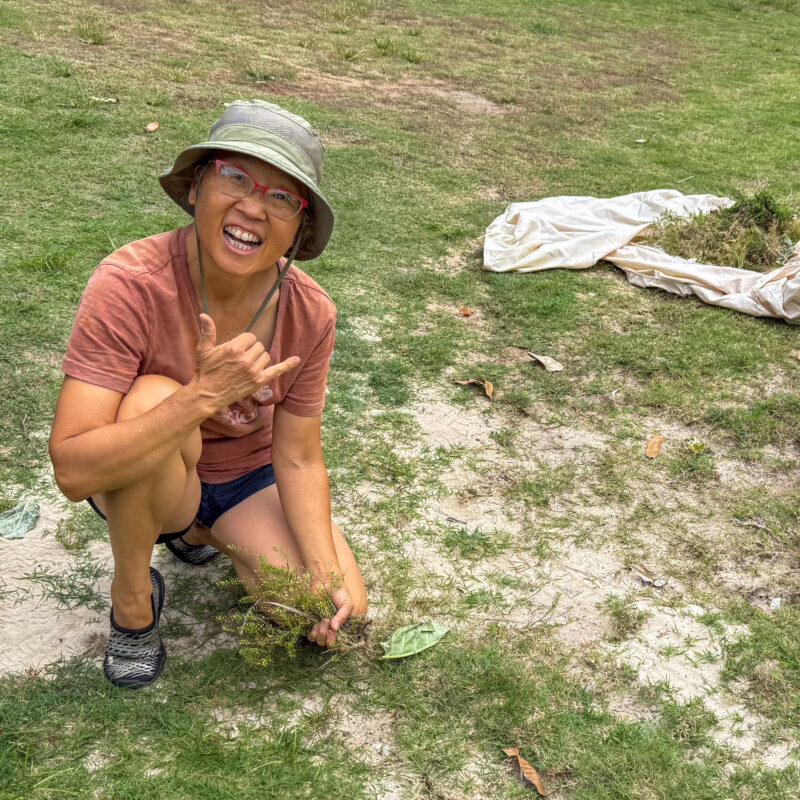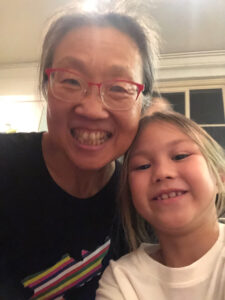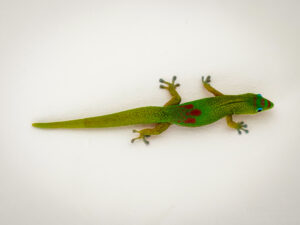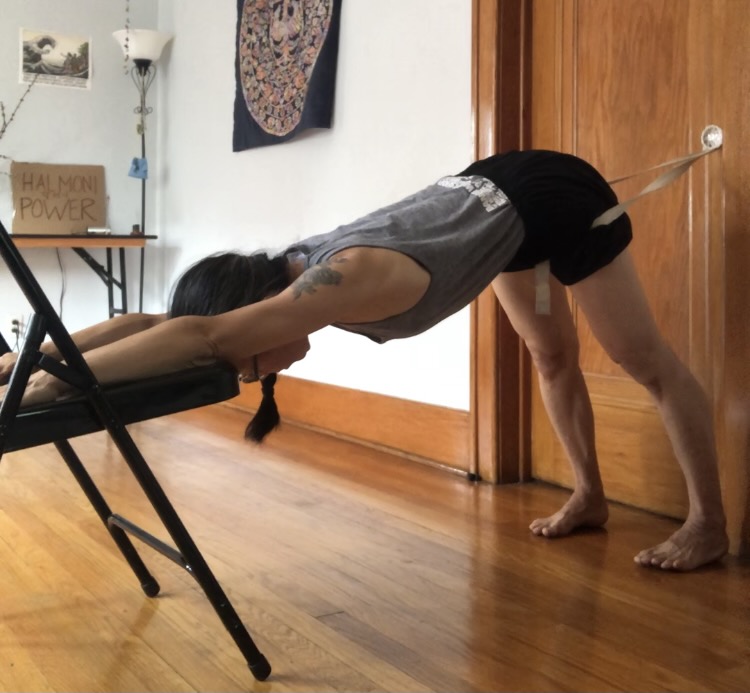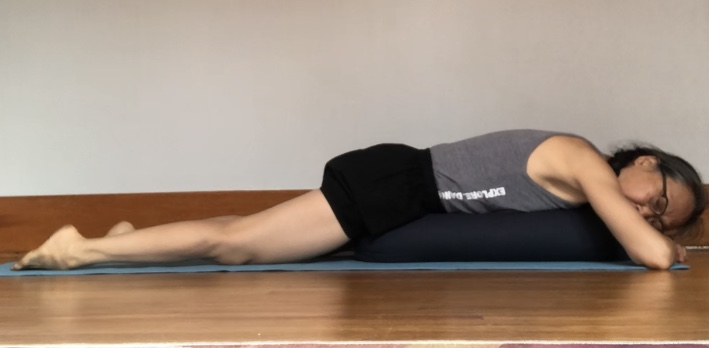As a working artist, I've never equated monetary net worth with actual value. I've always recognized that the most impactful, transformative, nourishing experiences, objects, and people, cannot be represented with a dollar value. When I was 20 years old, in the early 1980s, I interned at St. Mark's Poetry Project, in the Bowery in New York City. As a young poet, I saw brilliant poets living the barest of material lives, on so little financial means, so that they would have time to write and contribute to the literary community. Maybe they got a fellowship every once in a while, stretching it out to make it last as long as possible. Maybe they took part-time jobs to cover rent and food. The Lower East Side of Manhattan back in the day was not yet fully gentrified (although the signs were clear and undeniable), and you could still get a relatively cheap apartment.
This internship, and hanging out in the Bowery, planted seeds in me that would take root and flower over the years to come. It shifted my view of the world, helping me to understand what the artist's life required, as opposed to the dominant culture I had grown up in, which I now would call Colonized Mind. I'm using Colonized as an umbrella term to include patriarchy, capitalism, heteronormativity, racism, ableism, and even the universally lauded American Work Ethic. The poets in the Bowery embodied lifestyles and ethics of resistance to Colonized Mind: Why should we work for you? Why do you get to tell me how to spend my time and what to think? And even You need what we produce, whether you know it or now, and you need to uplift us.
Many years later, children grown, and newly divorced, I moved to Detroit, Michigan, in 2013, to study at the feet of Grace Lee Boggs and other movement and thought leaders, obsessed with questions of how to live in times of intense transformation, and even collapse. At that time we all engaged deeply in the concepts of New Work, New Culture, New Economy, spearheaded by Professor Frithjof Bergmann. These ideas revolved around the fact that our globalized economies, along with the rise of technology, guaranteed that jobs, as we knew them, would be less and less available, such that we had to evolve to figure out what it meant to be human, how we would eat and live, and create new cultures and identities that did not revolve around our former concepts of jobs.
Now, in October 2025, on the brink of the loss of food benefits for 40 million Americans, including me, I reflect, once again, on what it all means. What constitutes work in the 21st century? Whose responsibility is it to feed oneself and loved ones?
In a moment of extreme vulnerability, in the midst of an extreme culture of polarization, I decided to out myself on social media as a SNAP beneficiary. I felt an intense need to do this because of the lies and stereotypes attributed to people like me. Don't make me go through the litany; we've all heard the slurs about poor people throughout our lives. Colonized Mind has trained us to valorize greedy mofos like Zuckerberg and Musk, while demonizing people like me. So I posted:

I have been on and off SNAP for a while, some years leaner than others. Even though I'm a Senior Teacher in the Iyengar Yoga tradition, I often teach for free, or less than minimum wage. Since 2013, I have made 2 major moves. In 2003, I helped establish a nonprofit Iyengar Yoga center in Milwaukee, Wisconsin,
Riverwest Yogashala, and left it in 2012, to pursue my next stage of learning in Detroit. I helped establish a cooperative
Iyengar Yoga center in Detroit, and also left it, to move closer to my grandchildren in Hawai`i in 2021, and teach at
Iyengar Yoga Silent Dance Center. Admittedly, I've struggled here in Hawai`i, to build a large enough community to fully support me financially. I understand why folks tend not to uproot in their 60s to start all over--it's like trying to replant a mature, fruiting tree in a new land. I have a small cadre of committed students and mentees, and many casual students who occasionally drop in.
Like I've said, deep down, I know we cannot measure our worth in dollars. Professionally, I'm at the top of my game. My skill as a teacher has never been stronger. I do feel assured that the community here in Hawai`i respects, appreciates, and likes me. But that doesn't mean they want to study with me. Why would they want to change teachers and disrupt their weekly schedules, when they are perfectly content where they are?
I regard my yoga practice as my primary art form, as well as my spiritual practice. As such, I never expected nor required it to pay off financially. In addition to teaching locally, I teach for Iyengar Yoga Detroit, run their Teacher Education program, and teach students in Korea. I teach on a sliding scale, and quite a few of my students pay on the lower end, or not at all. I'm completely fine with that, because I don't believe in yoga as a commodity or commercial enterprise.
This means I have refined the art of simple living over the years. If you really knew, you might be appalled. I will spare you the details, except to say that the more I honor the gifts of the natural world, by living as conservatively as possible, the more integrated I feel with all of life. Somehow I manage to live an extraordinarily rich life, on very little money.
As you can imagine, I got a lot of traction on the post about being a SNAP user, overwhelmingly positive, but a few strangers decided they needed to scold me and set me straight. I decided not to drain my energy responding to them, but a few allies, also strangers, came out of left field to respond on my behalf.
Most of the attacks were along the lines of "You work to eat. No work, no eat." They reveal what I've come to think of as Plantation Mind. I think of my fellow Koreans, who came by ship in the early 1900s to work the sugar plantations, hungry, starved by the Japanese Empire. They came to make money, full-stop, and they did what was required. The trauma of displacement and backbreaking labor can lead to valorization of one's own trauma, and a reinforcing belief in its inevitability, such that it gets passed from generation to generation. Work your ass off for the master, and master will reward you: this message gets hardwired into generations. The only relief is 4 weeks vacation, and a 401K, for the lucky ones. Until then, the only option is to suffer through it, building resentment and hatred for those of us who refuse to step on the treadmill.
However Plantation Mind is survival mentality based on individual effort and sacrifice. It doesn't consider underlying systems of exploitation. Plantation labor in Hawai`i was basically indentured servitude, because slavery had been outlawed, but cheap or free labor was required for profit. Plantation owners recruited laborers from around the world, the more desperate, the better for their bottom line. Who are the real exploiters?
Corporate welfare remains invisible and unspoken. We ignore the preposterous, expanding wealth gap. We've long stopped complaining about the regressive tax codes, which let millionaires and billionaires keep growing their wealth, instead of sharing it with the rest of us. You see, low-income folks like me are not the problem.
Do I like depending on the federal government for food assistance? No, it makes me squirm and hold my nose. I also hate paying taxes that fund an out of control military industrial complex, responsible for multiple genocides, including the current one in Gaza. I hate the fact that I drive on government roads, depend on government funded healthcare, eat food from farms surviving on government subsidies. We live in times of collapse, but until it all collapses and something new birthed from the ashes, we are stuck with what we've got.
My critics want me to feel shame, and to apologize for accepting government aid. But my tiny aid package is not even a drop in the bucket of the aid that Musk, Zuckerberg, and the other tech and defense industries receive. Let's not even look at the BILLIONS to Israel, and the 300 million dollar demolition of the White House East Wing for a disastrous ballroom. Yeah, the ballroom is being privately funded, but take a minute to ponder why these businesses might be shelling out money to the president. Hmmmf?
Please, let's not attack the poor. We're the last to blame for the collapse of our nation. We're not poor because of bad planning, laziness, self-indulgence, or stupidity. We're impoverished by the exploitative system of capitalism, which requires a massive underclass.
In my case, I choose to live on very little money, because I refuse to compromise my ethics to serve a master I do not believe in. I choose to devote myself to meaningful work that benefits the community, whether it pays or not. I choose to spend time caring for my grandchildren, raising money for mutual aid in Palestine, and providing yoga therapy for people even if they do not have the means to pay me. I choose to devote myself to `āina and akua, knowing there will not be financial gain. Because of these choices, I rarely eat out, never shop, attend only free cultural events, and share, share, share, as much as possible in cultivating beloved communities of mutual aid.
In my heart I truly believe I am putting in, giving back, and investing more than I take. I'm not the only one. Most impoverished people are caring for little ones, or kūpuna, or people with disabilities. Most impoverished people are working the jobs no one else wants to, and getting paid way too little. The poor keep the system afloat, while the rich keep stealing more and more. Instead of attacking the poor, we should be uplifting them, while making the wealthy pay up!
I wish none of this needed to be explained. Personally, I never learned any of this in school, or from my immigrant parents. I had to teach myself well into adulthood, while shedding the layers of Colonized Mind. It takes time, and I can't blame those who are only looking at the individual and not the system, because that's definitely how I was brought up. Don't look at the man behind the curtain! But until and unless we all see the bigger picture, we cannot rise up together. We cannot dismantle the massive edifices of injustice. We cannot create the society that we all long to live in, where we all have decent housing, food, healthcare, and education. Where keiki and kūpuna are treasured and cared for. Where `āina is beloved as the basis for all life. May it be so.




